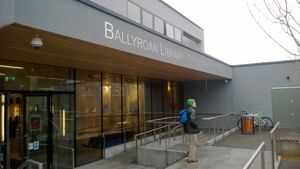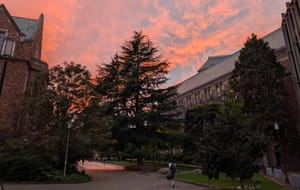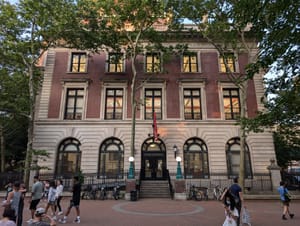The generative library
It occurred to me recently that the library definitions I most like have a reflexive quality. Dan Chudnov, for example, is admirably succinct and direct:
My professional mission as a librarian is this:
Help people build their own libraries.
That’s it. That’s all I care about. // One big library
This is from 2006. Interestingly, in the interim we have seen big growth in the personal ‘library’ – think of Mendeley or Goodreads for example.
Here are two from very different writers, each expressing the generative capacity of the library in a very pithy way …
People should think not so much of the books that have gone into the National Library but rather of the books that have come out of it. A library, after all, feeds the people that go in there. // Quoted in Kissane, Noel. 1994. Treasures from the National Library of Ireland. [Drogheda]: The Boyne Valley Honey Co.
This is Irish writer Seán O’Faoláin and the library he talks about is the National Library of Ireland.
The second is Daniel Dennett’s oft-noted …
A scholar is just a library’s way of making another library. // Memes and the exploitation of imagination
Now, Dennett’s remarks are in the context of Richard Dawkins’ argument about how memes mirror the behavior of genes, ” just different kinds of replicators evolving in different media at different rates”. While he wants to argue that this is a good way of thinking about ideas, he acknowledges that it is unsettling, “even appalling”: “….I am not initially attracted by the idea of my brain as a sort of dungheap in which the larvae of other people’s ideas renew themselves, before sending out copies of themselves in an informational Diaspora”.
I like the way each of these emphasises the role of the library in a cycle of creation and recreation. The library is not an end in itself but an institution which helps create new knowledge.
Evidence, argument and agenda
And finally, here are another two which come at a similar idea from different perspectives …
First, Ross Atkinson, a refreshingly cerebral librarian, has written:
Because the purpose and result of absorbing information is always finally to produce further information, i.e., to continue the conversation, the function of the library must be understood as one that assists members of the community both in taking particular positions and in recognizing and assessing the positions taken by others. // Contingency and contradiction: The place(s) of the library at the dawn of the new millennium. Journal of the American Society for Information Science and Technology, Volume 52, Issue 1, Pages 3-11.
The opening here echoes the generative theme of the last two. But what drew me to this was the latter part, which emphasises the library’s role in providing the material and evidential base for debate and enquiry.
This leads directly into what is for me the most affecting of these accounts, coming from Irish writer and journalist, Fintan O’Toole. He is writing about public libraries in Dublin, libraries which I also heavily used and later worked in for a while.
The library should not provide an argument for a particular case, but demonstrate that there is always another case to be made. The notion that the library is a place that has no agenda other than allowing people to invent their own agendas is what makes it an indispensable resource for a democracy. It is where we can learn not just to be readers, but to be the authors of our own destiny. // Reading, writing and rebelling : growing up with public libraries in: The university of the people : celebrating Ireland’s public libraries
O’Toole’s essay is a marvellous tribute to public libraries. It does not appear to be available online, but I quoted from it at length here.
‘Agenda’ may be a more loaded word than Atkinson’s ‘position’ but I immediately associated the two in my mind. The idea that a library is a place which “has no agenda other than allowing people to invent their own agendas” resonates strongly. Of course, to achieve this goal, libraries do indeed have to have an agenda.
Picture: I took the feature picture of Ballyroan public public library. Ballyroan is a Dublin suburb.
Note: Cosmetic stylistic updates on transition to new platform, 28 March 2021, including addition of feature picture and headings.




